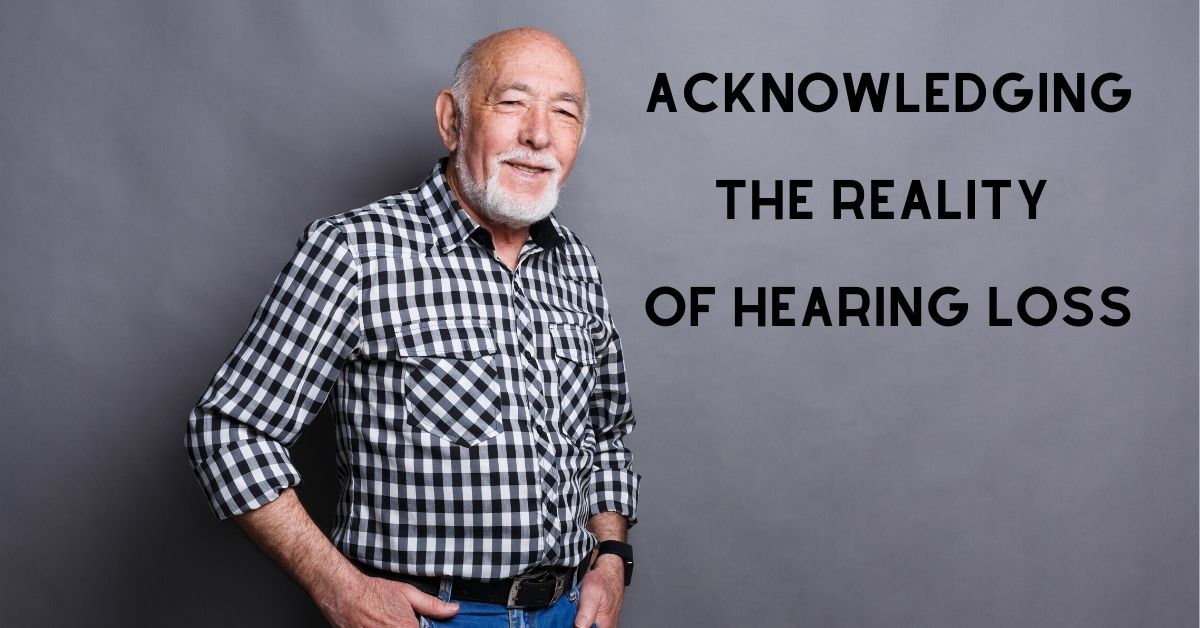
Acknowledging the Reality of Hearing Loss
When compared to heart disease or poor eyesight, hearing loss one of the symptoms that people have trouble understanding and accepting. From the time they first detect improvements in their hearing to the time they complete a hearing assessment, Americans wait an average of seven to ten years on average.
And the reluctance doesn’t always vanish until a person is screened and diagnosed with a hearing loss. Many patients continue to wait months or even years before seeking hearing aids following the initial hearing test, and even when they acquire hearing aids, some don’t wear them long enough for the transition phase to pass.
The harsh reality of hearing loss
Nearly 1 in 5 Americans suffer hearing loss, from moderate to extreme. People with mild hearing loss may not know they have a hearing loss yet also face the consequences of hearing loss in relationships with their friends and family.
People with severe hearing loss are typically the most likely to seek help because their hearing loss can be highly disabling, and impair their ability to communicate with others, drive a vehicle, or maintain a career.
Early treatment is crucial.
The earlier hearing loss is noticed and treated, the better you respond to the treatment. That is because as the hearing loss occurs, our brain circuitry is gradually altered, and our cognition is affected.
The way we perceive sound happens primarily in the inner ear, where delicate hair cells are programmed to sense various sound frequencies and transmit signals to the brain’s auditory cortex for processing. Damage to hair cells also leads to an irreversible hearing loss – once injured, the hair cells have no way of restoring or replacing themselves.
If we lose our full sound processing capacity, our brain receives only partial knowledge of what a sound means. This extracts cognitive energy from other areas of the brain, while our auditory cortex works to put together meaning from scraps of sound.
Over time, unaddressed hearing difficulties ultimately rewrite our mind’s methods of interpreting sound. As the auditory pathways shift to compensate for hearing loss, neural pathways once used for healthy hearing erode and are reassigned for other purposes.
This means that the more prolonged hearing loss stays unaddressed, the further it becomes from our “normal” way of hearing as the brain becomes more reliant on methods to function around missing auditory information.
The fewer changes we allow to happen with our ears, the easier it is to assimilate hearing loss treatment into our lives.
Do it for your family
Numerous studies have been carried out in countries around the world, linking treating hearing loss with hearing aids and strengthening relationships with loved ones.
Think about the crucial moments and comments at family events you will miss because you haven’t picked up on the conversation. When you accept your hearing loss and deal with it, these relationship stressors can be alleviated, and you can go back to connecting with your loved ones.
Do it for your career
Very little good comes from covering up your hearing loss, particularly at work. Research has shown that people with untreated hearing loss are considered to be less relaxed, intelligent, and smart than their peers without hearing loss or who use hearing aids to treat their hearing loss.
If you don’t recognize your hearing loss and conceal it from your colleagues in turn, they may view your hearing difficulties as a lack of intellectual understanding.
Acknowledging and being open about your hearing loss at work is crucial so that your colleagues can make changes that allow you to participate altogether. It would also help your colleagues realize that if you didn’t catch a part of the meeting or presentation, it’s not because you couldn’t understand the material, but simply because you didn’t hear it.
Hearing aids have changed
Modern hearing aids are advanced devices that can help you hear in ways you never expected. They’re elegant and stylish gadgets you’re going to be excited about wearing every day, and they could help greatly help in any environment.
Current hearing aids focus on helping you hear the most important sounds, and the right fitting and programming with a hearing specialist will mean you stand the best chance of understanding all the most essential sounds.
At Absolute Audio, we take great care of your hearing and quality of life. We’re so excited to show you all the positive benefits associated with acknowledging and treating your hearing loss. Contact us today to set up a consultation.
